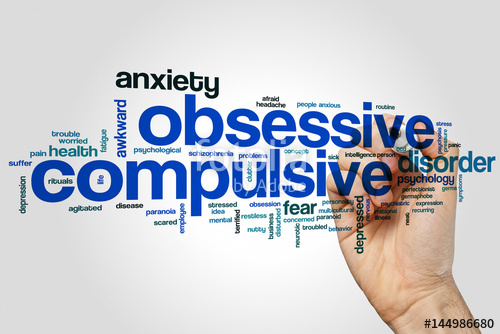To understand how to deal with Obsessive-Compulsive Disorder (OCD), you need to know which type you are suffering from. If you have loved ones living with OCD, you also need to know about the type of OCD that they are living with to be able to help them calm down. However, even though an individual may appear to have stable symptoms of a particular disorder for a while, it is possible to experience symptoms of other types of OCD from time to time.
Here are the common types of OCD;
1. Contamination Obsessions with Washing/Cleaning Compulsions
If you are suffering from this subtype of ODC, you may feel discomfort associated with contamination. This may cause you to clean a lot to fight the distress. For instance, after touching a doorknob, you may feel the urge to wash your hands with fear of having acquired some dirt or contaminating others. As a result, you may end up cleaning your hands for hours with no end, very many times.
2. Harm Obsessions with Checking Compulsions
If you are dealing with this subtype disorder, you may be very paranoid about your safety and that of others. You may, therefore, feel the need for assurance that everything is fine. For example, you may think your house is on fire and end up driving to ensure it is in good shape. Similarly, you may feel as if thinking about something negatively may actually make it happen. You may also call your friends and relatives excessively just to be sure they are safe.
3. Obsessions without Visible Compulsions
This OCD type makes you experience unwanted obsessions surrounding aggressive themes, sex, and religion. Individuals suffering from this disorder often use many affirmations and mental rituals. This is in an attempt to subsidize the fear of being a rapist or hurting other people physically. For instance, a mother may have this fear of stabbing her children, which is very disturbing.
4. Symmetry Obsessions with Ordering, Arranging and Counting compulsions
This kind of OCD gives an individual the need to arrange their stuff in order. For example, you feel the need to arrange your clothes according to their colors. The patients do not feel settled without having things done their way. They may go through harmful extends of thinking, “If I arrange my books or clothes in a certain way, my child will not get an accident.” However, this is always far from what reality is.
5. Hoarding
Hoarding is now a different diagnosis according to the DSM-5(Diagnostic and Statistical Manual of Mental Disorders). It is possible for individuals to suffer this kind of disorder without OCD. This is considered the most dangerous disorder. Patients suffering from this type of ailment, feel the need to hold on to things that other people do not consider important such as old newspaper and magazines. They feel the importance to keep everything as they may need it for future purposes. The individuals, therefore, suffer from serious anxiety and depression and may not be able to stay employed. Their rooms become full of cluttered stuff making their homes very unconducive to live.
Is OCD a type of anxiety?
Obsessive Compulsive Disorder (OCD) causes individuals to have unwanted images, thoughts and urges that intrudes a person’s mind causing them anxiety. In return, the people involved practice certain rituals to seek comfort.
76% of people suffering from OCD suffer from anxiety. In fact, scholars had classified obsessive-compulsive disorder as a subtype of anxiety disorders before the DSM-5, due to similar symptoms.
Even though OCD and anxiety are distinct mental illnesses, patients living with both diseases tend to over think and stress over things that do not exist. With obsessive-compulsive disorder, the thoughts produce anxiety which they fight back with compulsions.
Both OCD and anxiety have similar treatment processes. They both use psychotherapy and medications (anti-anxiety medications and antidepressants) to reduce symptoms and eliminate disruptions in life.
Can OCD cause mental disorders?
Patients living with OCD stand high chances of suffering from other mental disorders such as bipolar disorder, depression, schizophrenia, and personality disorder. The root of OCD is not defined yet, but it has something to do with lifestyle and biological factors.
Researchers say that patients who have been diagnosed with OCD, whose parents have the same condition are at high risk of having schizophrenia. Despite schizophrenia and OCD being different mental illnesses, they have symptoms that overlap.
The research also showed that OCD is most likely to affect teens and adults living with autism (complex neurobehavioral which includes impairments with communication skills, social interactions, and rigid competitive behaviors) than the general public. However, distinguishing the restricted interests and repetitive behaviors that are the trademark of autism from OCD symptoms can be very challenging.
Suffering from OCD can be overwhelming to both the suffering and affected individuals. However, understanding the type of disorder one is fighting can be of great help when dealing with OCD. It helps loved ones understand why patients behave the way they do and help them overcome tough times.
.

